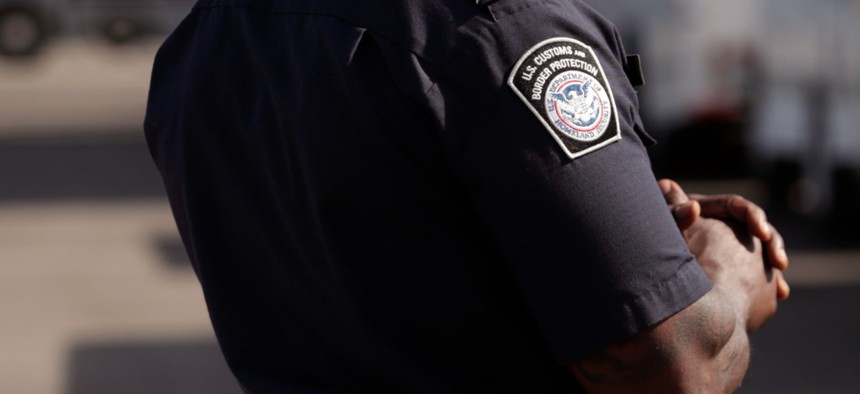
Glenn Fawcett / CBP
A Retirement Glitch Affecting More Than 1,000 Customs and Border Employees Could Soon Be Fixed
A weekly roundup of pay and benefits news.
Senators last week introduced a bipartisan bill that would correct an error where more than 1,000 Customs and Border Protection officers were denied retirement benefits that they had mistakenly been promised.
In 2008, U.S. Customs and Border Protection implemented a law making CBP officers eligible for enhanced retirement benefits to make up for the fact that they are required to retire at age 57, provided that they have 20 years of service and make larger retirement contributions. The law set up a transitional system for those hired before July 6, 2008 providing the enhanced retirement annuity rate despite the fact that they would not have reached 20 years of service before their mandatory retirement date.
But CBP mistakenly informed officers who were given job offers before July 6, 2008, but did not start work until after the transition date, that they would also be eligible for the enhanced benefits. When the agency realized its error in 2020, it reversed course, requiring them to serve 20 years to become eligible for the benefit, despite the fact that those employees had already been making higher retirement contributions for over a decade.
According to Sens. Gary Peters, D-Mich., and Josh Hawley, R-Mo., “at least” 1,352 officers were affected by CBP’s error. The lawmakers introduced the U.S. Customs and Border Protection Officer Retirement Technical Corrections Act (S. 3868) in an effort to make these federal workers whole.
The bill would make CBP officers who received their job offer before June 6, 2008 but started work after that date exempt from the requirement that they serve 20 years before gaining access to higher annuity payments. And it requires the Homeland Security Department to create a list of all eligible employees, inform them of the change, and provide the Office of Personnel Management with the information needed to process affected employees’ retirement correctly.
“Customs and Border Protection officers are essential to protecting our communities in Michigan and across the country, as well as facilitating secure and lawful trade and travel across our borders,” Peters said in a statement. “Dedicated officers should not have their retirement plans upended due to an error that occurred in 2008. This bipartisan bill will ensure that Customs and Border Protection upholds the commitment they made to these employees and provides them with the retirement benefits they were promised.”







